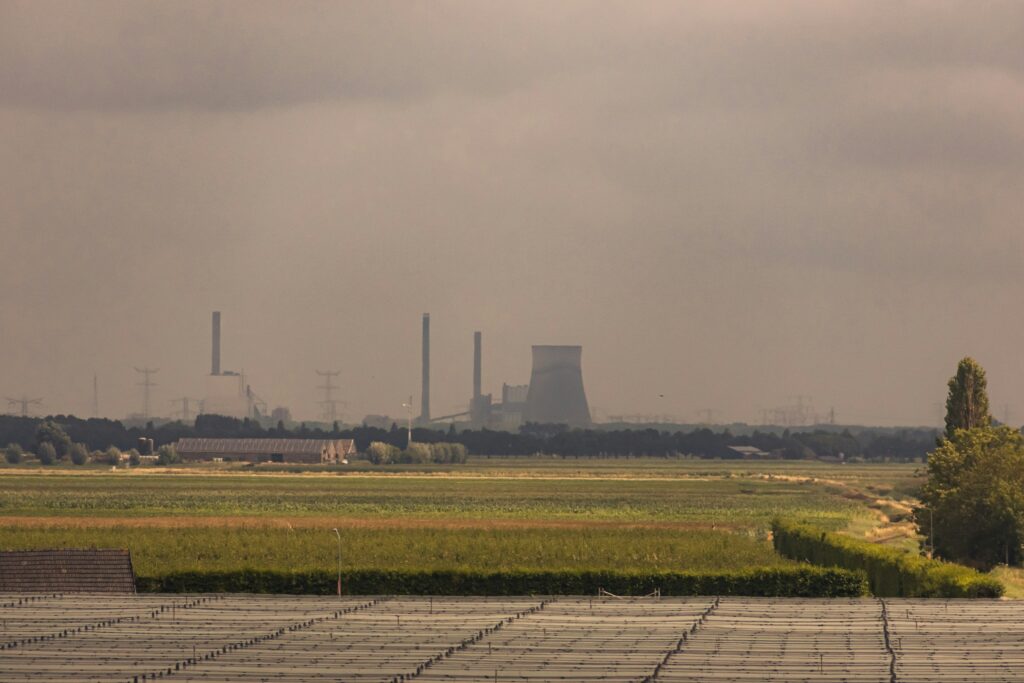Could Europe Drop the Ball on Carbon Capture and Storage?
Europe took a bold stance on Carbon Capture and Storage but signs in 2025 point to wavering political commitment.
In 2024, momentum for carbon capture and storage (CCS) in Europe reached new heights with the European Commission publishing its Industrial Carbon Management Strategy (ICMS). The strategy lays out the path to reach 50 million tonnes of carbon dioxide injection capacity annually by 2030. It was a long-awaited milestone.The Commission finally acknowledged that CCS is not a fringe technology, but a necessary tool for achieving its net-zero target by 2050, especially in Europe’s harder-to-abate industries.
The Industrial Carbon Management Strategy (ICMS) lays out the path to reach 50 million tonnes of carbon dioxide injection capacity annually by 2030.
The ICMS came with strong signals, while the 50 million tonnes per annum target became a legally binding injection capacity obligation for the oil and gas sector under the Net Zero Industry Act (NZIA). The NZIA also listed CCS as a strategic net-zero technology. The message was clear: Europe could no longer delay action on carbon management and deploying the necessary enabling technologies and infrastructure.
Yet as time goes on, the proof will be in continuous ambition, and more crucially, implementation. Stakeholders are now asking themselves: “Has Europe stalled on CCS?”
After the EU elections, considering growing political pushback to the Green Deal, the new Commission began communicating new political priorities focused on boosting the competitiveness of EU industry. A cross-party group of 30 Members of the European Parliament called on the Commission to reflect the urgency of industrial carbon management in its forthcoming Clean Industrial Deal (CID).
Despite the clear strategic importance of CCS in ensuring a sustainable and competitive industry in Europe, developments in 2025 show us that CCS risks slipping down the policy agenda.
The CID, published earlier this year, reaffirms the support of the ICMS. However, with only one paragraph outlining it as a technology that can make or break decarbonisation in sectors like cement, lime, and waste-to-energy, we worry that the importance of CCS to this end is understated. This sends a worrying signal: political support for CCS is fragmented, fluctuating, not a given, or at worst, fading.
This sends a worrying signal: political support for CCS is fragmented, fluctuating, not a given, or at worst, fading.
The EU elections, with increasingly vocal right-wing calls to pause decarbonisation efforts, are a source of additional uncertainty for industry and investors. Coupled with an already visible shift on several key green policy priorities.
In short, while the Commission has made bold declarations and significant strides in 2024, the follow-through in 2025 is still uncertain. And uncertainty has been, and could remain, a main barrier to scaling CCS for industrial decarbonisation.
This uncertainty is particularly concerning now that the EU’s industrial policy is increasingly shaped by competitiveness and geopolitical turbulence caused by US tariffs. In this context, CCS is a crucial strategic enabler. It will safeguard industrial jobs, create new future-proof jobs and attract green investment, while cutting emissions in sectors where electrification and efficiency improvements simply aren’t sufficient to fully decarbonise.
Importantly, enabling CCS is not just about targets. It’s about sending the right political signals to the stakeholders involved. Without clear and consistent declarations of support from the Commission, Member States, and the European Parliament, it will be harder to close regulatory gaps, de-risk investments, and mobilise capital. And without those, meeting the timelines outlined in the ICMS will be a struggle.

Take public procurement. The CID rightly recognises it as a tool to create lead markets for low-carbon products to strengthen the case for investment in industrial decarbonisation. But it falls short. The Commission merely proposes that revised Public Procurement Directives “allow” sustainability criteria, not require them. This is, in fact, already the case. To make a real difference, such criteria must be mandatory, with minimum weightings for climate impact. Voluntary language has not driven demand at the scale or pace needed, with 55% of public tenders in the EU under the scope of the Directives being awarded based on price only.
Let’s be honest: part of the hesitation around declaring support for CCS in the CID may stem from its controversial reputation, fuelled by concerns that it could extend the fossil fuel age, alongside the rising political headwinds around climate policy more broadly. But tiptoeing around or outright dodging the issue won’t help – bringing clarity and nuance will. If Europe is serious about boosting industrial competitiveness and decarbonising its industrial base, it must recognise that for some sectors, CCS is not optional; it’s essential. And if there was ever a moment to make that clear, the Commission’s flagship CID was the place to do it.
If Europe is serious about boosting industrial competitiveness and decarbonising its industrial base, it must recognise that for some sectors, CCS is not optional; it’s essential.
CCS won’t materialise out of thin air. It needs planning, investment, public backing, and coordination across Commission departments and Member State governments. And the European Parliament now has an opportunity to step up where others are hesitating.
This is a make-or-break moment for industrial decarbonisation. We can’t afford to let CCS fall by the wayside, not in 2025 nor the decade ahead.